It has been discussed for quite some time now if and how non-taxable grants may affect the deductible proportion of input VAT. …
It has been discussed for quite some time now if and how non-taxable grants may affect the deductible proportion of input VAT. Proceedings before the Federal Fiscal Court have already shown that taxable persons need to participate at an early stage. If they do not, the amount of input VAT may be estimated and grants maybe considered negatively. However, taxable persons are in the position to avoid such unpleasant surprises.
1. Facts
According to sec. 15 para. 1 sentence 1 no. 1 of the German VAT Act, a taxable person is only allowed to deduct input VAT if the supplies were purchased for the purposes “of his taxable activities”. Interpreted in line with EU law, this would mean that he must make use of the supplies in the course of his economic activity. If the taxable person benefits with respect to his non-economic activities, no input VAT can be deducted. In the particular case before the Federal Fiscal Court, the question was how to calculate the input VAT as regards an organization which carries out both economic and non-economic operations. In this case, the Federal Fiscal Court was called upon to issue an opinion as to what extent government grants have an influence on the deductible proportion.
2. Federal Fiscal Court judgment of 24 September 2014 (V R 54/13)
The claimant was a registered (not charitable) organization with the objective of promoting the cooperation of its members in the aerospace business. The claimant explicitly refrained from participating for profit in the market in accordance with its statutes. The claimant‘s revenues were the following in the year of dispute: membership fees, grants from the state ministry responsible and, to a small extent, fees for taxable supplies to members. The claimant deducted VAT in the full amount from rental expenses for office premises and for advertising. However, the tax office did not acknowledge the full input VAT deduction. Input VAT deduction was allowed only proportionally according to the relation of taxable remuneration and total revenue.
The Tax Court allowed the action only to a very limited extent. The Tax Court calculated the deductible proportion by means of a proper estimation as the claimant, contrary to his obligation to cooperate, failed to make an allocation. An interesting factor was that the (non-taxable) grants had a negative effect on the deductible proportion, as the court considered the grants to belong in the denominator when calculating the deductible proportion:
The following statements of the Federal Fiscal Court are also interesting:
– If an organization represents the general interests of its members it is deemed to be non-economic.
– First of all, the purchased supplies should be allocated to the rendered supplies.
– The taxable person is obliged to participate in allocating purchase invoices respectively.
– If the taxable person does not participate, VAT deduction is to be estimated (analogous to sec. 15 para. 4 of the German VAT Act).
– Grants and membership fees may be included in the total revenue when establishing the deductible proportion of input VAT.
Therefore, the Federal Fiscal Court upheld the previous judgment of the Tax Court. Non-taxable grants may affect the amount of input VAT negatively.
3. Consequences for the practice
These proceedings are the “perfect example” of how not to approach this situation. For many (non-profit) associations, VAT deduction is a big challenge. It is often not clear to what amount VAT can be deducted or how to calculate the deductible proportion of input VAT. The situation becomes particularly problematic when the institution is funded by non-taxable grants or membership fees.
The tax authorities grant considerable relief in sec. 2.10 of the German VAT Circular. Furthermore, there are even some judgements that explicitly exclude non-taxable grants when establishing the amount of input VAT. However, the Federal Fiscal Court ruled differently in these proceedings. It should be noted that the claimant obviously did not know how to prove the direct connection between the supplies and the “taxed transactions” when it came to establishing the facts. According to the reasons for the decision, the claimant did not meet his obligation to cooperate. He may simply have been unable to prove the above mentioned connection.
For the practice, this means that VAT deduction, especially for government subsidized facilities, should no longer be taken lightly. Precautions must be taken at an early stage. VAT law still grants a number of simplifications (see sec. 2.10 para. 6 of the German VAT Circular). It is even possible to arrange sharing mechanism with the tax authorities. (sec. 2.10. para. 7 of the German VAT Circular).
It is doubtful whether the Federal Fiscal Court’s approach to always consider grants (negatively) in the denominator when establishing the deductible proportion of input VAT will be applied in every case. Reversely to art. 174 para. 1 sentence 2 of the VAT Directive, this would mean that grants, as long as there is no precise interpretation in the national law, do not belong in the denominator.
Prof. Dr. Thomas Küffner
Küffner Maunz Langer Zugmaier

